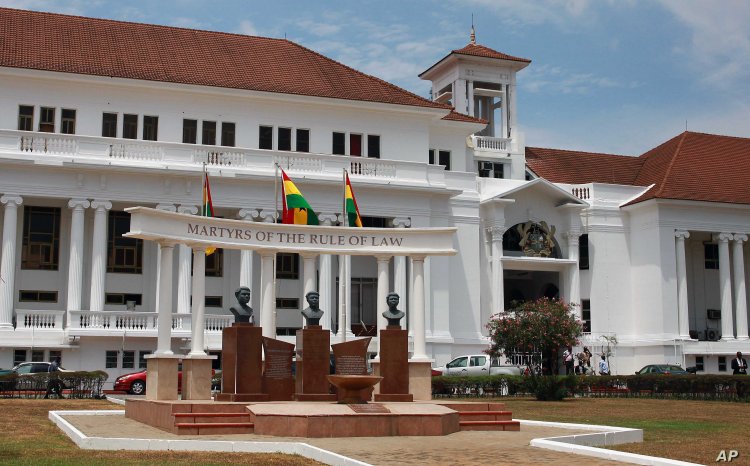Supreme Court sets date to rule on Domelevo's GH¢184m surcharge of Zoomlion
The Supreme Court will interpret the constitutionality of the surcharge

The Supreme Court will on December 3, 2020, rule on the constitutionality of a GH¢184 million surchage slapped on Zoomlion Ghana Limited by the Auditor-General’s Department.
Per a report by the Daily Graphic, a seven-member panel of the apex court will give an interpretation of the constitutional provision that gives the Auditor-General the power to disallow expenditure and surcharge people.
In October 2018, the Auditor-General, Yao Domelevo, issued a surcharge and disallowance against the waste management company for over GH¢184 million for a fumigation exercise carried out for the Ministry of Health (MOH) but which was paid by the National Health Insurance Authority (NHIA).
The surcharge was issued after an audit of the accounts of the NHIA made findings that Zoomlion had between the years 2007 and 2018 allegedly been paid a total amount of GH¢184,901,650.00 without due process.
READ ALSO:
We did nothing wrong by publishing full voters’ register - EC
According to the Auditor-General, Zoomlion continued to receive payment for the fumigation exercise up to August 2018 even though the four-year contract that started in 2009 had ended.
“Zoomlion appealed the decision of the Auditor-General at the Accra High Court on December 5, 2018, and urged the court to set it aside. On January 31 this year, the High Court presided over by Justice Georgina Mensah-Datsa dismissed the appeal.
“Dissatisfied, on February 6, 2020, Zoomlion appealed the decision of the High Court at the Court of Appeal. The Court of Appeal realised that there was constitutional interpretation to the case and subsequently referred it to the Supreme Court,” the Graphic report indicates.
On December 3, the Supreme Court will seek to interpret Article 187 (7) (b) (i) of the 1992 Constitution which allows the Auditor-General to “disallow any item of expenditure which is contrary to law and surcharge, the amount of any expenditure disallowed upon the person responsible for incurring or authorising the expenditure”.






































